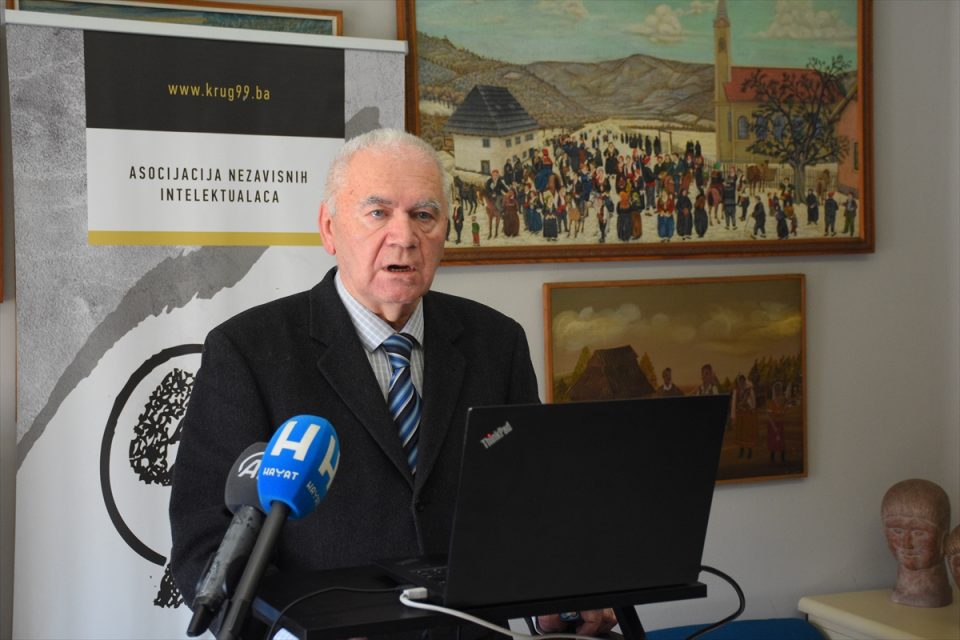SARAJEVO, MARCH 3 (ONASA) – Bosnia and Herzegovina has been practically a captive state by the politics of Serbia for more than three decades, and when we talk about today’s relations between Bosnia and Herzegovina and Serbia, we cannot do without reviewing and sorting out the facts about what happened in the 1990s, it was said from the regular session of the Association of Independent Intellectuals Circle 99 on the topic “Serbia and Bosnia and Herzegovina – how to proceed?”.
The keynote speaker was Zoran Vuletić, president of the Civic Democratic Forum of Serbia, who emphasized that in Serbia, journalists, the public and even politicians are not expected to talk about the recent past from the 1990s.
“Because this vow of silence is a political response to what is currently happening in Serbia and in the region and which policies threaten us, so it is not allowed to talk about the immediate past,” Vuletić said in his address.
He wondered how to build further relations between Serbia and Bosnia and Herzegovina under such circumstances.
“Bosnia and Herzegovina has been practically a captive state by the politics of Serbia for more than three decades, and when we talk about today’s relations between Bosnia and Herzegovina and Serbia, we cannot do without looking back and comparing the facts about what happened in the 1990s and which is why our relations are insurmountable at the moment and it is impossible to get out of them”, said Vuletić.
According to him, one of the reasons is the Dayton Peace Agreement.
“The first reason is the way the Dayton Agreement was organized. Today, one can see the lack of justice that was absent in 1995, when the Dayton Agreement was drafted and adopted. Then peace was prioritized at the expense of justice and an immediate stop to the war was prioritized,” he said.
Vuletić believes that it is painful that many in Serbia believe that nothing wrong was done with the Republika Srpska project.
“After such a Dayton, we come to Serbian politics which has received a new wind at its back and a feeling of victory and, worst of all, it has the feeling that nothing was done wrong with the Republika Srpska project, but that it was all right and inevitable that happened, and in this way Slobodan Milošević, Vojislav Šešelj, Radovan Karadžić and Ratko Mladić proclaim the triumph of their politics, and thus partially compensate for the debacle in Krajina, and during ’98 they start the war in Kosovo, naively believing that it will be possible to expel almost a million Albanians. citizens of Serbia at the time without reaction from the international community. It was an attempt to fully compensate for the loss of Krajina. Of course that was inadmissible”, Vuletić said.
He reminded that NATO intervened against Serbia in 1999 in order to stop the war machine of Milosevic and Seselj.
“Having in mind the experience of war in Serbia, above all in Bosnia and Herzegovina, having in mind the experience from Srebrenica where genocide was committed, having in mind the experience with the blockade and bombing of Sarajevo for almost four full years, all this having in mind, after ten years, NATO has decided that it must protect the Albanian community in Kosovo so that something similar does not happen again, and this is something that is absolutely rejected in Serbia as an option to discuss it, let alone for one of the politicians to use it as an argument for some support. that is, for the policy that is necessary in order for us to step forward and move on”, he pointed out.
He said that the same nationalist consensus still exists in Serbia today, regardless of the fact that in the last five years they got new political actors, noting that Serbia’s evil policy towards the region should not be ignored.


